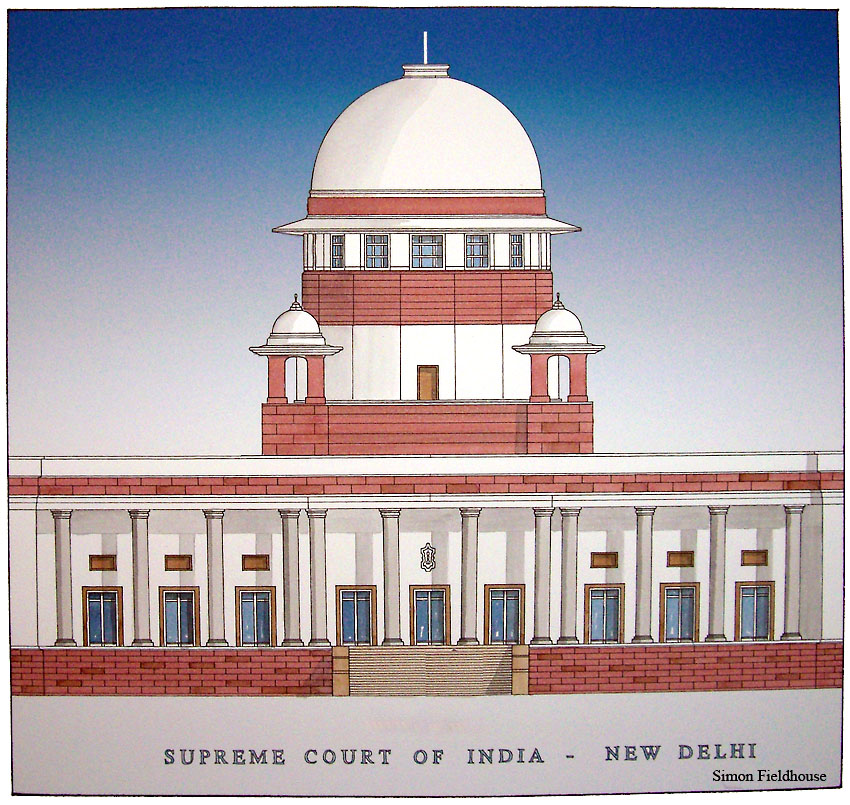Supreme Court Sets Out Guidelines to Make Police Accountable For Fake Encounters
The SC has spoken

NEW DELHI: In an environment where fake encounters are increasingly rapidly, as are deaths in police custody, the Supreme Court has sought to restore a level of accountability by issuing a set of directives aimed at ensuring proper investigation and punitive action as and where necessary. In doing so it has sought to take away the power of trial and execution from the forces with the gun and bring it back into the courts and concerned institutions.
The court has directed the police to keep a record---in writing or electronic---of intelligence inputs received about terrorists before going after them, And if the encounter leads to death, the police will now have to file a FIR immediately and ensure a proper, independent enquiry by a valid source that was not involved in the operations.
A bench headed by Chief Justice RM Lodha has also said that the weapons used in the encounter should be surrendered for ballistic tests. Investigation into these encounters will now have to be investigated by the state criminal investigation department or officers from another area of jurisdiction and not by anyone involved in the raid as has often happened in the past.
The court has said that police bravery awards for such encounters should not be rushed into, and that a policeman’s bravery has to be proven before honours can be conferred on him. Several ‘encounter specialists’ as human rights activists describe them have received gallantry awards for the same in the past along with handsome financial rewards.
The court has also made it mandatory for the information of an encounter to be sent to the National Human Rights Commission along with a status report on the investigation undertaken, every six months.
The court also said that police bravery awards for such encounters should not be rushed into, and that a policeman’s bravery has to be proven before honours can be conferred on him. Several ‘encounter specialists’ as human rights activists describe them have received gallantry awards for the same.
The court has intervened following a Public Interest Litigation filed by the People’s Union for Civil Liberties’ (PUCL) which had said that officers should not be promoted or rewarded for encounter killings until investigations were complete, and that independent enquiries under independent agencies should be instituted. The Supreme Court has ruled in favour of the litigation except that it has made it clear that the National Human Rights Commission should not intervene unless it was absolutely necessary.
In ten years from 2002 till 2014 India reported 1788 encounter deaths although activists insist that the figures are fudged as the police and authorities do not admit to encounter killings in the first place, and hush up the matter more often than not. Even so the National Human Rights Commission taking cognisance of the official statistics found that the highest number of encounters had been reported from Uttar Pradesh, 743, followed by Assam, 273, Andhra Pradesh, 101 and Maharashtra 88. Despite the high profile encounter killings in Gujarat with several cases still in courts the statistics from this state are on the low side, registering just about 12 fake encounter deaths since 2002. The Ishrat Jahan encounter case is still facing trial in the courts.Delhi has a higher number, with 55 encounter deaths to its dubious credit with the Batla House encounter seen as a landmark in the capital’s history.
Human rights activists have been agitating constantly against encounter deaths and about the attitude of the police and state governments that look at these as “justified.” There is an unwritten policy justifying these with the tacit support of not just the police system, but also the politicians and the bureaucrats. Political pressure is seen as one of the causes behind fake encounters with state leaders and others having their own list of ‘criminals’ to be so eliminated by the police.
On the record all agree that fake encounters are “reprehensible” but little has been done at the level of the legislature and the executive to check this practice that has grown over the years. In insurgent prone areas like the Maoist belt, the north eastern states and Jammu and Kashmir these are accepted practice, and are seen as “instant justice” under which the army, police, paramilitary and of course the concerned governments have complete impunity.
This despite the fact that the judiciary sees this, as it has endorsed now, as legally impermissible. Chaman Lal and Savita Bhakhry, the two authors of a 2013 NHRC journal, said: "Fake encounters are considered an operational necessity, legally impermissible, but morally justified by most police personnel. Fake encounters are occurring with such sickening frequency that occasional reports of genuine encounters are viewed with suspicion."
There is no place in the legal system for exceptions to the rule that everyone is honest until and unless proven guilty. Encounters allow the forces with the gun to become the dispensers of justice without a trial.



